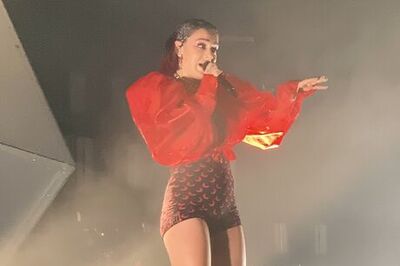
views
Durban: As pressure increases on India to accept legally binding carbon emissions cuts, Environment Minister Jayanthi Natarajan on Monday stressed on "equity" as a central tenet of the climate change talks.
"Without a response based on equity we cannot solve the problem," Natarajan said at a side-event at the UN climate talks in Durban.
"The architecture we create and promote should be based on recognition of these fundamental principles," she said adding that "Equity is absolutely central to the climate change debate."
"India's position will be based on clarity, consistency and compassion," Natarajan said.
Speaking at the side-event on equity, organised by the Indian government and the Centre for Science Environment, Sunita Narain, India's leading environmentalist, stressed that the developed world should carry the burden of reducing carbon emissions.
"They (developed countries) have legal commitments to reduce and not to increase," she said.
"There is a tremendous effort to shift the blame so the rich countries do as little as they can," she added. After losing out in last year's talks in Cancun, the Indian delegation insisted that negotiators here revisited the issue of equity as part of its three point agenda, which it submitted in the first week of the climate talks.
The three point agenda-- equitable sharing of atmospheric carbon space, technology sharing and intellectual property rights (IPR) and unilateral trade barriers--has received a lukewarm response.
Pa Ousman JARJU from Gambia, who represented the Least Developed Countries, indicated that bloc agreed with India in principle but there really isn't time for new discussions on the issues that New Delhi is pushing.
"We are in agreement with India but we cannot wait any longer," he said adding that "Everyone must do something." Artur Runge-Metzger, from the European Union, said that the present conference in Durban was not the right time to add new-agenda items to the current discussions.
"That is overloading the process," he said. Government negotiators from 194 countries have gathered to discuss the next steps to combat climate change.
After the first week of talks, little progress has been made on key issues like the annual USD 100 billion Green Climate Fund and the future of the Kyoto Protocol, the only legally binding treaty, which is in jeopardy.
On Monday, Environment Minister Natarajan took charge of the Indian delegation, which is under pressure to accept legally binding emission cuts from the developed countries as well as from the most vulnerable developing nations.
India remains steadfast that eradicating poverty remains its top agenda, which also corresponds to its decision to revisit the issue of equity.
On her first day at the talks, Natarajan had bilateral meetings with ministers of the emerging economies alliance called BASIC (Brazil, South Africa, India and China).
"Issues I have raised have been taken seriously," she said.
Responding to whether India was caught off guard by China's setting conditions for accepting legally binding cuts after 2020, Environment Minister Natarajan remained vague about New Delhi's concerns.
"India does not have a closed mind," she told reporters, adding that and she would continue to push the country's three-point agenda of equity, technology and intellectual property rights as well as unilateral trade barriers.
China said that it will sign up to a legally binding carbon emission cuts after 2020 on the condition that the developed world should do it part to bring down greenhouse gas emissions in this decade--and these efforts should be effective in controlling the problem.
She also rubbished claims that India was being a spoiler. "I don't perceive this as a correct perspective," Natarjan said, adding "Our development imperative is important".
Natarajan on Monday met top negotiators from the United States, European Union and the alliance of emerging economies called BASIC (Brazil, South Africa, India and China).
"We are very optimistic that we will understand each others positions," she said.
Developments over the past week, however, indicate deep divisions between developed and developing nations that are yet to be bridged.
In 2005, developed countries promised to transfer complex technologies to developing countries free of cost to cope up with climate change.
But in 2009 at Copenhagen, they failed to commit to such transfers citing the problematic intellectual property rights regime.
Runge-Metzger also noted that the discussion on IPR had been carried out for more than a decade but no solution had been reached.
The European diplomat reiterated the continent's position that trade discussion should be taken up under the WTO and not the UN framework (UNFCCC).
"Is the UNFCCC to do the work of the WTO?" he asked. "Is the intention of India to duplicate the work?" he asked to stress on the point.

















Comments
0 comment